Cloud storage is becoming a key solution for modern organizations seeking efficient ways to store, organize, and access their data. As businesses generate ever-increasing volumes of information, reliable and scalable storage systems are essential for operational success in today’s digital era.
What is Cloud Storage?
Cloud storage refers to a service model where data is stored on remote servers accessed through the Internet. Instead of relying on local servers or hard drives, businesses can securely store their files and data on servers maintained by cloud providers. This ensures that data is accessible from anywhere with an internet connection.
Cloud storage plays a vital role in today’s data-driven world. It allows businesses to centralize their data and make it accessible to employees, partners, and clients while ensuring security and efficiency. It is also cost-effective, as organizations only pay for the storage they use, reducing the need for expensive on-premise infrastructure. Additionally, it facilitates data lakes for analytics, enabling businesses to extract insights and drive decision-making processes.
How Does Cloud Storage Work?
Cloud storage operates using a virtualized infrastructure that enables data to be stored across multiple servers in a cloud environment. When data is uploaded, it is divided into smaller chunks, encrypted for security, and distributed across various physical servers. These servers are managed and maintained by cloud providers, ensuring data redundancy and high availability.
Businesses can access their data through web interfaces or APIs, making it seamless to retrieve, update, or delete files as needed. Advanced features like automated backups and data versioning further enhance reliability.
Types of Cloud Storage
The mechanics of cloud storage vary based on the implementation type, with 3 primary architectures:
Block Storage
Block storage segments data into smaller units called blocks, each with a unique identifier distributed across storage drives. This approach delivers high speed and minimal latency, making it ideal for enterprise databases, ERP systems, and applications requiring dedicated, low-latency storage. It functions similarly to direct-attached storage (DAS) or storage area networks (SAN), providing consistent performance for performance-intensive workloads that demand quick storage and retrieval of data.
File Storage
A file storage solution implements a hierarchical structure of files and folders, similar to personal computer storage and network-attached storage (NAS). It uses common protocols like Server Message Block (SMB) for Windows and Network File System (NFS) for Linux. This familiar format facilitates traditional file and folder organization through directories and subdirectories, making data access and retrieval straightforward for conventional applications. The hierarchical structure makes it particularly suitable for shared access and collaborative environments where multiple users need to access the same data.
Object Storage
As the name suggests, object storage manages data as objects comprising three elements: file data, associated metadata, and a unique identifier. It is designed for managing massive amounts of unstructured data such as photos, videos, machine learning data, sensor data, audio files, and web content. Using RESTful API protocols, this system stores files and metadata as single objects with assigned ID numbers. Users retrieve content by presenting the ID, receiving the complete package with metadata, authentication, and security measures. This cloud storage system allows customized metadata, enhancing data management and analysis capabilities while supporting native format storage with extensive scalability.
Cloud Storage Use Cases

Cloud storage has versatile applications across industries, including:
- Analytics and Data Lakes: Store massive datasets for business intelligence and analytics.
- Backup and Disaster Recovery: Ensure business continuity with secure backups stored off-site.
- Software Test and Development: Create flexible environments for testing and development projects.
- Cloud Data Migration: Simplify the transfer of data to the cloud for better accessibility.
- Compliance: Meet regulatory requirements with secure and auditable storage solutions.
- Cloud-Native Application Storage: Enable applications built for the cloud to store and retrieve data efficiently.
- Archive: Store infrequently accessed data at reduced costs.
- Hybrid Cloud Storage: Combine on-premise and cloud storage for a tailored solution.
- Database Storage: Host and manage database workloads with high performance.
- Machine Learning (ML) and IoT: Store data generated by IoT devices and machine learning models for processing and analysis.
Benefits of Cloud Storage
Cloud storage offers significant advantages for businesses compared to traditional storage area networks (SANs). Below are some of the notable advantages of using cloud storage:
- Pay-as-You-Go Model: The cloud storage model eliminates substantial upfront capital expenses by allowing businesses to pay only for their actual storage consumption. While these costs are recurring rather than one-time investments, they often prove more economical than maintaining in-house systems. This approach provides financial flexibility and better resource allocation, particularly beneficial for growing businesses with varying storage needs.
- Utility Billing: The utility-based billing model offers unique cost advantages, as expenses can decrease when storage usage drops. This contrasts sharply with traditional in-house storage systems, which typically require over-configuration to accommodate anticipated growth. Traditional systems often lead to paying for unused capacity initially, with fixed costs regardless of actual usage. Cloud storage’s flexible billing ensures organizations only pay for actual consumption, optimizing cost efficiency.
- Global Availability: Cloud storage provides universal accessibility, allowing authorized users to access data from any system, location, and time zone through internet connectivity. This eliminates common concerns about operating system compatibility or complex resource allocation processes. The global availability feature particularly benefits organizations with remote workers or multiple office locations, enabling seamless collaboration across geographical boundaries.
- Ease of Use: The user-friendly nature of cloud storage platforms significantly reduces technical barriers. Developers, software testers, and business users can quickly begin utilizing storage resources without depending on IT teams for allocation and configuration. This self-service capability accelerates project timelines and reduces administrative overhead, though organizations should still maintain proper governance and security protocols.
- Off-Site Security: Public cloud storage inherently provides geographical data redundancy by storing information in secure, remote locations. This built-in disaster recovery capability offers protection against physical damage, theft, or localized disasters. The cost savings are substantial compared to maintaining private remote facilities, though organizations should carefully evaluate their providers’ security measures and compliance certifications.
While in-house cloud storage systems can replicate some of these benefits, particularly in terms of ease of use, they typically cannot match the storage capacity flexibility of public cloud services. However, hardware vendors are addressing this limitation by developing solutions that allow customers to dynamically adjust their installed storage capacity, bridging the gap between traditional and cloud storage solutions
Overall, cloud storage is a powerful solution that enables businesses to manage their data efficiently and securely. With different types of storage options and diverse use cases, it caters to the unique needs of organizations. The benefits, such as cost savings, scalability, and ease of use, make it an indispensable tool for digital transformation.
Cloud Solutions Offerings from SCB TechX
As a leading innovative solution provider in Thailand, SCB TechX offers comprehensive cloud solutions tailored to meet diverse business needs, including:
- Cloud Foundation and Landing Zone (Cloud Accelerator Program): Enable organizations to establish a robust cloud foundation for future growth, ensuring secure and efficient cloud adoption.
- Cloud Security: Advanced cloud security solutions, including thorough security assessments and penetration testing, to protect organizations against emerging cyber threats.
- Cloud Migration: Our expert teams facilitate smooth transition of existing systems to the cloud, ensuring minimal disruption to business operations.
- Cloud Operation Management: Comprehensive management services ensure optimal performance of cloud environments.
In addition to cloud solutions, SCB TechX also offers innovative xPlatform and eKYC solutions for secure digital identity verification and comprehensive digital transformation offerings.
For more information about cloud solutions and digital transformation services, contact SCB TechX at contact@scbtechx.io
Facebook: SCB TechX
Medium: medium.com/scb-techx
LinkedIn: www.linkedin.com/company/scb-tech-x/
YouTube: SCB TechX




